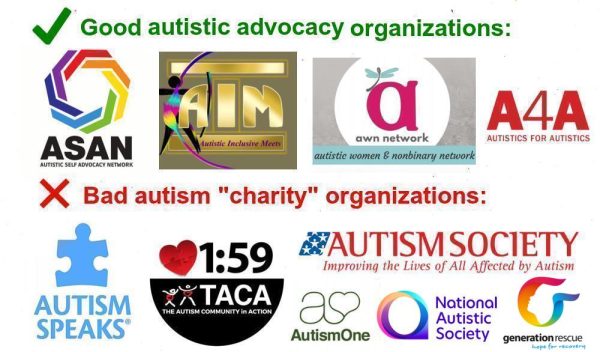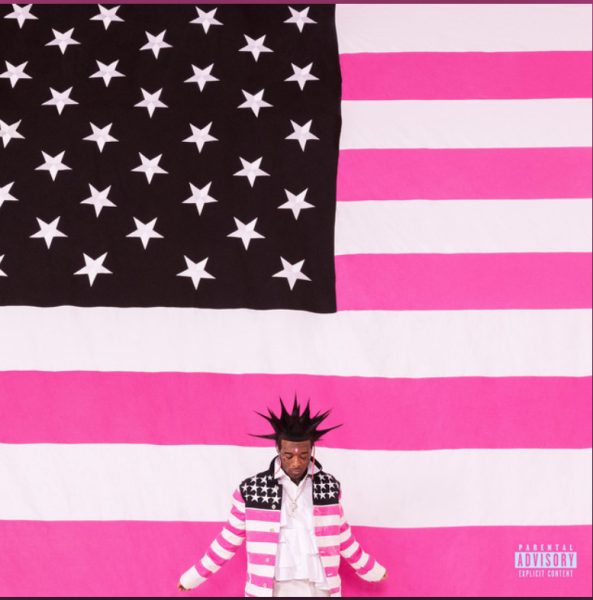Are Musicians Insane?
April 28, 2015
Recently, the pop sensation One Direction announced the departure of Zayn Malik, a core member since the group began about five years ago. His decision was attributed to stress, understandably—One Direction is a constant holder of the spotlight since their breakthrough in 2011, and recently, the media turned a watchful eye specifically on Malik when they started rumors of him cheating on his fiance, Perrie Edwards.
The second Malik left, the group’s fanbase went awry— they took to Twitter, Tumblr, Instagram and what have you to console each other and try to keep their heads up through it all. This was the end of their favorite band as they knew it, and I couldn’t help but feel bad for them. It’s truly sad, admittedly, to watch anything fall apart, especially when that something was so important to so many people you know and love. Okay, sure, I’m not the biggest fan of One Direction. I don’t know much about them, other than the songs I’ve heard on the radio and stories friends have told me. There are plenty of people here way more qualified to talk about Zayn Malik than I am. So I’m not going to talk about him, rather, I am going to talk about musicians.
When your favorite band falls apart, it is absolutely justified to feel devastated. People can say what they wish about you and fellow fans— they truly just don’t get it. When you get absorbed in something like the music of a certain, special group, it’s hard to let go of that. Music is an extremely powerful art form that can change the way you see the world, or at least enhance your established view of it. Do you ever hear a song that just makes you want to get up, kick through a wall, and then fly away? Me too! Or what about when you’re just down on your luck so you throw on that one song and you dissolve into a salty puddle of hot tears for a while (before eventually kicking down a wall, because you are strong and NOTHING CAN BRING YOU DOWN!) We’ve all had that. Music is powerful. It could very well be the closest thing to magic mankind has come across yet. Are musicians just witches that stir up audible potions for your ears to drink? Possibly. Are they geniuses? Are they insane?
Unfortunately, they’re often both.
It was Aristotle who initially defined the link between “madness” and “genius.” Of course, this steps way beyond the threshold of music— you could apply it to any form of art, science, technology, and what have you. But it’s often that a musician or group finds themselves blinded by the spotlight they’re under and simply breaking down.
In 1997, Radiohead released their classic OK Computer. I don’t use the word “classic” lightly— the record was just preserved by the Library of Congress due to its significance, but following its initial release nearly two decades ago, the band went through a phase of becoming so overwhelmed they couldn’t even speak to each other. Tensions rose so high that after recording its follow-up album*, they almost broke up simply because they couldn’t agree on the track listing.
*The follow-up being 2000’s strangely beautiful “Kid A”, an electronic music album completely different from the guitar driven alt-rock the band had been known for. After lots of fighting over what tracks made the cut, the leftovers were later released a year later as “Amnesiac.
Or back in 1966, when the Beach Boys set out to record their eleventh album, Smile, but the band members were falling on extremely difficult times mentally and financially and Capitol Records deemed the results way too weird to be commercially acceptable. The album was never completed, a different one was put in its place, and to this day, all we have of Smile is scraps pieced together in a way that almost resembles the album*.
* ”The Smile Sessions” was a compilation released in 2011 that consisted of the highlights of “Smile”. After Brian Wilson released a solo rendition of the album, Capitol Records used the original tapes from the recording sessions of “Smile” to piece together what Wilson and the band may have intended the record to sound like. Though it was still unfinished, it was met with universal acclaim from critics and fans alike.
What I’m getting at is that in the same way that the art (or, specifically, music) you consume is a powerful positive force in your life, it can be destructive as well. Some nerd* once said that for every action, there is an equal and opposite reaction. This applies here just as well as it does to physics. The Malik incident is possibly the most recent case of cultural zeitgeist leading to a person’s downfall. Perhaps every generation has one, too, as most of our parents were in high school or college when Nirvana took over the airwaves and then disappeared right at their peak after Kurt Cobain’s tragic demise.
*The “nerd”, by the way, was Sir Isaac Newton. I knew that.
Taking it back to the 60s for a moment, we all should know about the “hippie” counter-culture. Primarily influenced by a liberal political stance, spirituality, sexual freedom, and yes— a fair share of drugs. LSD and similar hallucinogens were often regarded by young people of the 60s as a means of getting in touch with their spiritualties. (In fact, one of The Grateful Dead’s original names was “The Acid Tests” and they frequently performed early shows while high on LSD.) Regardless of anybody’s personal opinion on these ideals, it helped and it hurt. The movement paved the way for music legends such as The Beatles* or a little bit later, Pink Floyd. Here’s the thing with Pink Floyd— they were around long before The Dark Side of the Moon or The Wall was ever conceptualized— in the late 60s, the group was founded by Syd Barrett. Barrett had already struggled with mental illness his whole life, but they were only made worse by excessive drug use. One early Pink Floyd show, in fact, featured a completely dazed Barrett strumming one single chord on his guitar and not saying a word. It got to the point where the band just stopped picking him up on their way to shows. This isn’t to undermine the work of Barrett in any way. It should be no surprise that yes, sometimes great things can come from an ill mind. But unfortunately, add more and more careless pressure on someone, and they usually crack. Oh, and Roger Waters? The mastermind behind who replaced Barrett and churned out those aforementioned classics (whose album covers are probably featured on a t-shirt somewhere in your closet)? He later caved in too after Pink Floyd blew up, even spitting on a fan who tried to climb up on stage. To this day, he’s still pretty mad at that kid.
*The Beatles and the “British Invasion” attributed to them may very well be the first case of musicians finding such a following among teenagers, in a similar vein of a modern act like One Direction. Are you mad at me for using them in the same sentence? Get off your high horse!
The truth is that there is unfortunately an inseparable link between success and tragedy. Who is really to blame for it, if anybody, is up for debate. Some may argue it’s merely the modern media — as appears to be the case with Zayn Malik— or perhaps it’s a part of a much larger whole. Whatever the case may be, I hope that all fans of music can take the time to realize that their beloved musicians are human beings just as fragile as they are, and sometimes they might just break. It’s devastating, and nobody wants to see it happen— to their favorite artists, or for anyone. But in the case that it does, remember the music they left you with and keep on listening.
And really — who knows, Zayn might just return to One Direction.











